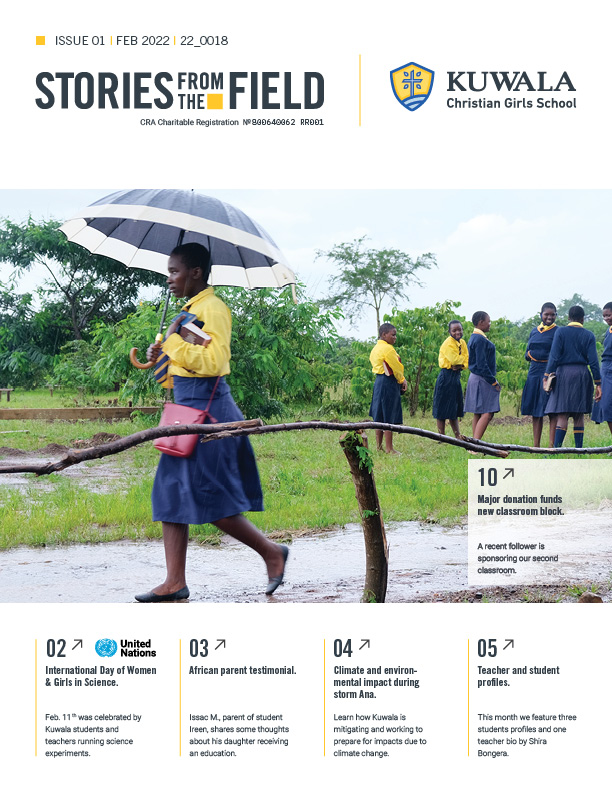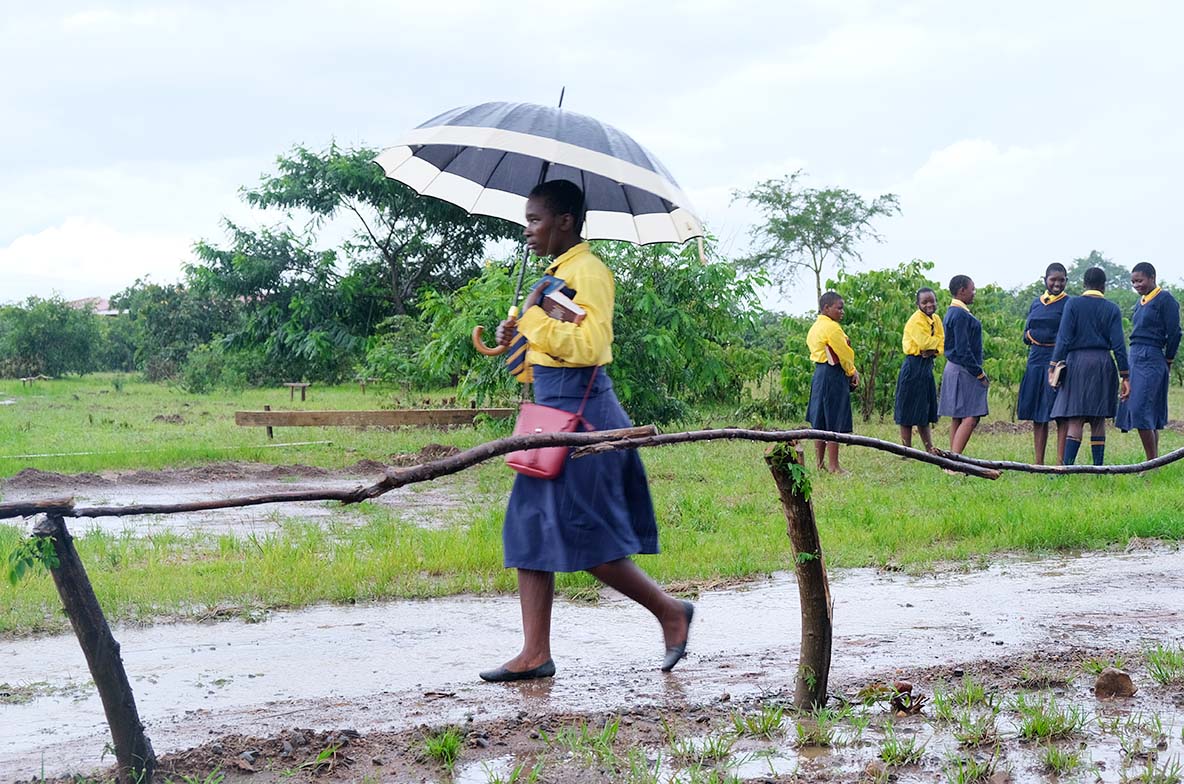Women and girls represent half the world’s population and, therefore, also 50% of its potential. Gender equality, a fundamental human right, is essential to achieve peaceful societies with full human potential and sustainable development.
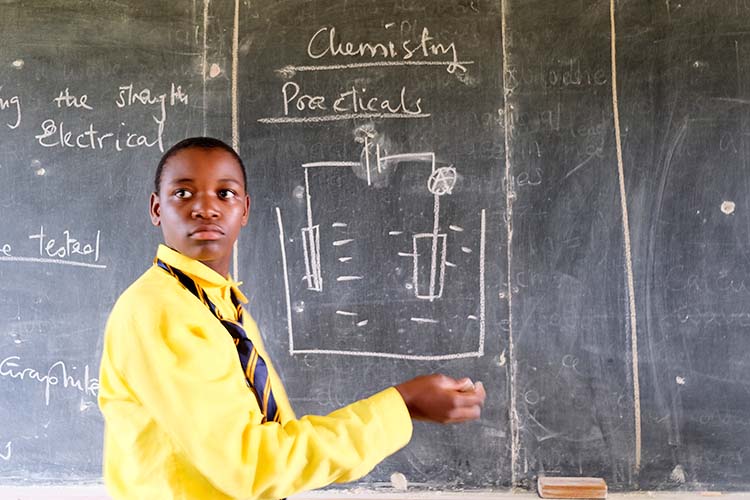
Women accounted for one in three (33%) researchers in 2018. In some cases, they have achieved parity (in numbers) in life sciences in many countries and even dominate this field. However, women remain a minority in digital information technology, computing, physics, mathematics and engineering. These are the fields that are driving the digital revolution and so many of the jobs of tomorrow.
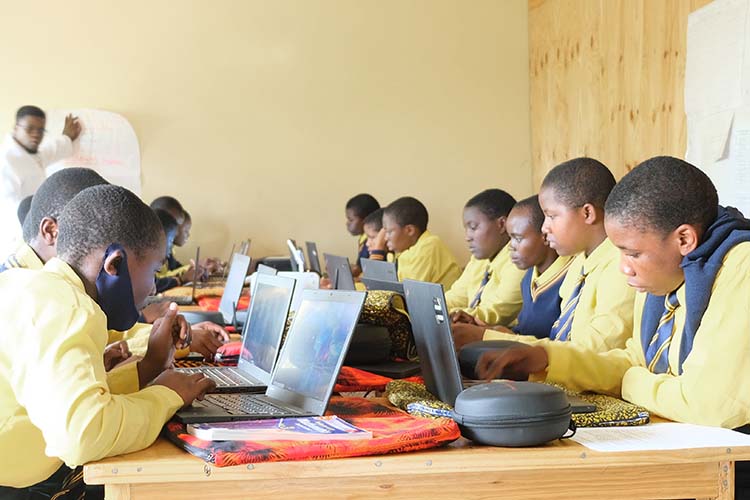
At Kuwala, the teachers follow the Malawi curriculum for chemistry, biology, and physics. With the donation of computers from Canada and the ARES learning system, the girls at Kuwala enrich their learning with computer applications and navigation. In 2022, your future letter from the girls just may come as a document that they have formatted, typed and uploaded themselves! When you read the girls’ bios in the newsletters, they are passionate about science and learning to appreciate the environment and master English.
Source: www.un.org/en/observances/women-and-girls-in-science-day/
Testimonial from parent
I am Issac M. parent of Ireen, who is in Form 1 at Kuwala Christian Girls School. In his own words..
The aim of the evaluation day was for the parents to see how the children are behaving academically, socially and spiritually. The teachers welcomed us and were at different tables according to their subjects. As a result, most of the students are doing better according to the results of the mid-term exams. At Kuwala, teachers are doing their job to transform girls into reliable citizens when they graduate. Not only academically, but also the children learn to respect the elders and help the needy around the school villages.
Climate and environmental impact during storm Ana.
Tropical Storm Ana had a devastating impact in Malawi. The country lost 30% of its electricity from the National Grid.
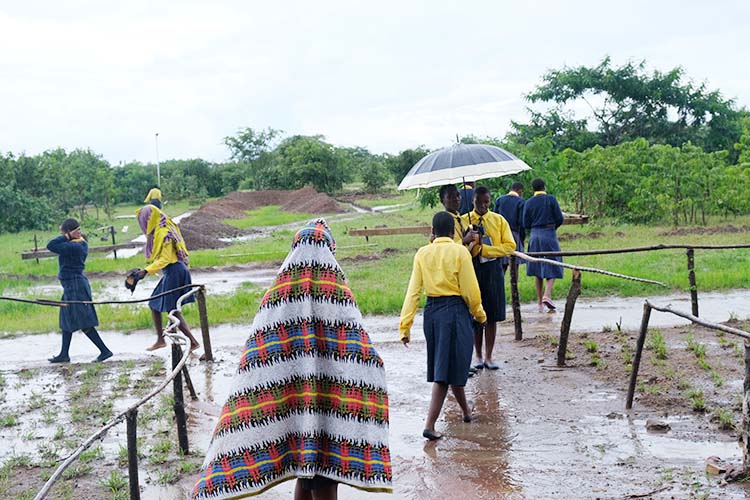
During the power outages, the girls miss their study time in the evenings because there is no electricity for lights. Students and staff have to manually fetch water in buckets from the school’s water supply to prepare meals, clean and bathe. Teachers had challenges preparing for mid-term exams. Although the storm did not cause physical damage at the school, Kuwala felt the impact. Continuing rains have washed away roads just outside the campus, making travel difficult.
Kuwala has been working to prepare for impacts due to climate change and actively increasing its resilience. The school has accumulated and can store enough maize for a sustainable period. The greenhouse, outdoor garden and orchard provide a sustainable source of nutritious food for the school, fertilized with on-site composting. The seasonal planting of tree and shrubs provide surface cover to the land and shelter from the heat and wind. The grading of the land improves drainage. A committee has been formed to assess the practical steps to increase resiliency to climate change events like storm Ana.
Source: https://www.washingtonpost.com/world/2022/01/28/storm-ana-deaths-malawi-madagascar-mozambique/
Meet our newest teacher
Shira Bongera, in her own words…
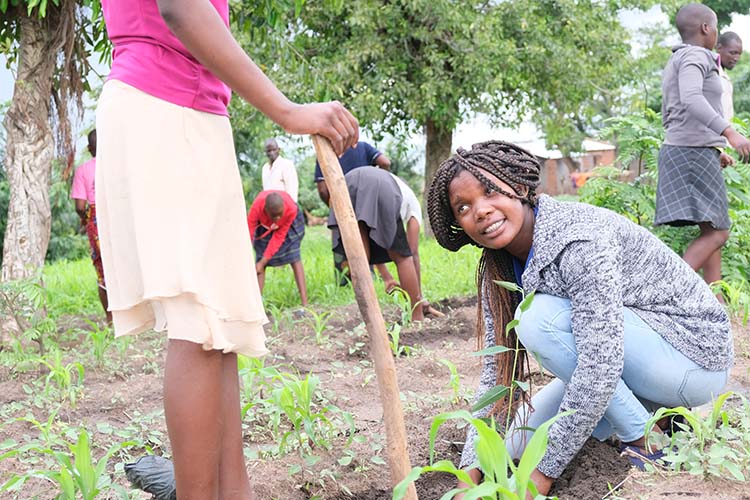
I am a Christian who teaches Agriculture, Chemistry, Physics and Lifeskills. In addition, I teach Netball. Growing up in Lilongwe, I attended secondary school and obtained my bachelor’s degree in fisheries and aquatic sciences at Mzuzu University. I am happy to work at Kuwala because students and teachers interact well. The working conditions are good. Many of the students have potential and have adapted to Kuwala’s discipline. They have talent and are focused on achieving their desired goals. The students indeed have a hard-working spirit, spiritual background and willingness to change for a better future. Yes, I see most students making it here to achieve their goals and positively impact their community.
Studying for mid-terms
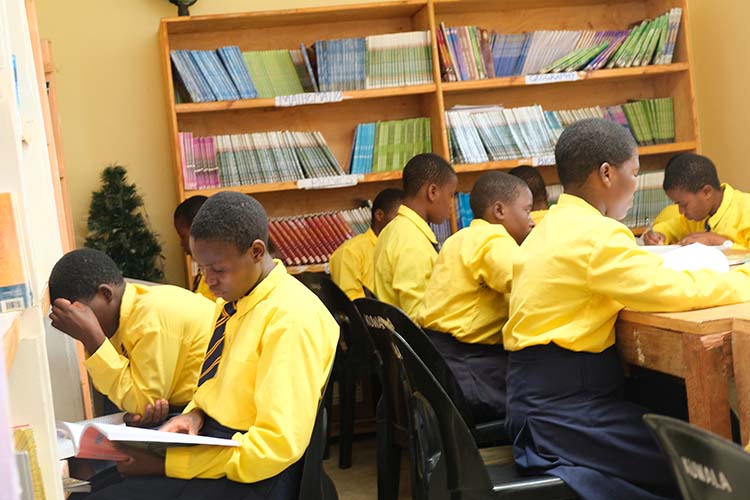
This month the students were writing mid-term
exams in all 13 subjects. These exams gauge how they are performing and prepare them for what they need to do for final exams at the end of the term. The subject teachers prepare the exams following the national standard, and an examination officer checks them before production and administration. The exam has a maximum grade of 100 marks, and the passing grade is 60%. Parents, guardians, and students were invited to review their results and discuss student performance on evaluation day.
February is “I Love to Read Month,” and all the girls at Kuwala enjoy reading. The school library contains books that can help them practice their English language skills, grammar, and conversation. The more they read and participate in debate and drama club, the more advanced they are in English. As a result, English comprehension will be the highest weighted test subject on the National Exam.
Three student profiles
Meet Lucy, a Form 4 student in her last year at Kuwala. In her own words…
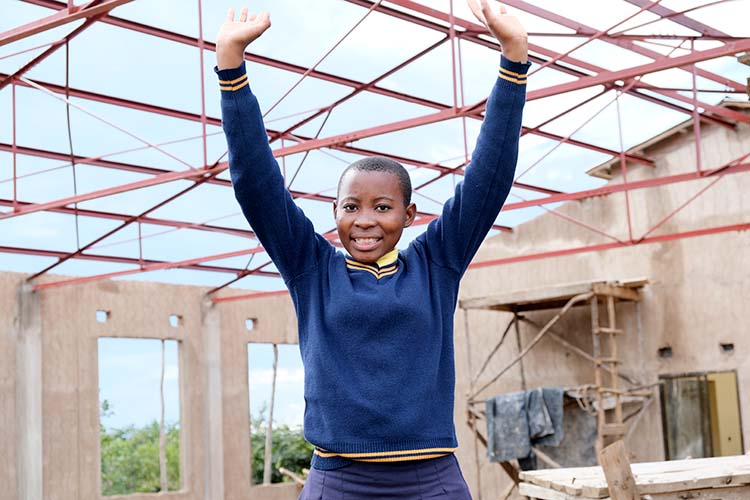
I have two sisters, and I am the first girl to attend secondary school. I wanted to go to secondary school because I have a goal of going to University and achieving my dream of being a doctor and owning a clinic. I was so glad to be accepted at Kuwala. My family was excited and proud because they knew I wanted a girl’s boarding school. I help my siblings to speak English. My favourite subject is science, especially understanding chemical reactions and electrical current connections in Physics. I also enjoy computer skills. Apart from learning, I also like study circles because it helps me gather information from my friends, have better knowledge and confidence, and express my views. Furthermore, I enjoy reading novels, which allow me to have a good vocabulary and think deeper as some stories are puzzling.
Meet Elize, another Form 4 student. In her own words…
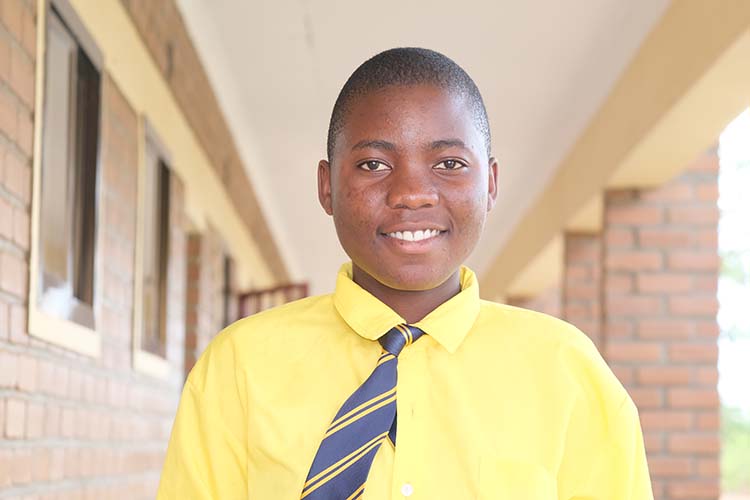
I have three sisters, and I am the first in my family and my village to go to a girls’ school. I want to go to University, and in the future, I would like to be an accountant and own a small business. I enjoy Math and English, and computer practicals. In addition, I enjoy reading books, telling stories, playing football and dancing. I am motivating my siblings to be like me.
Meet Tadala, a Form 4 student, In her own words…
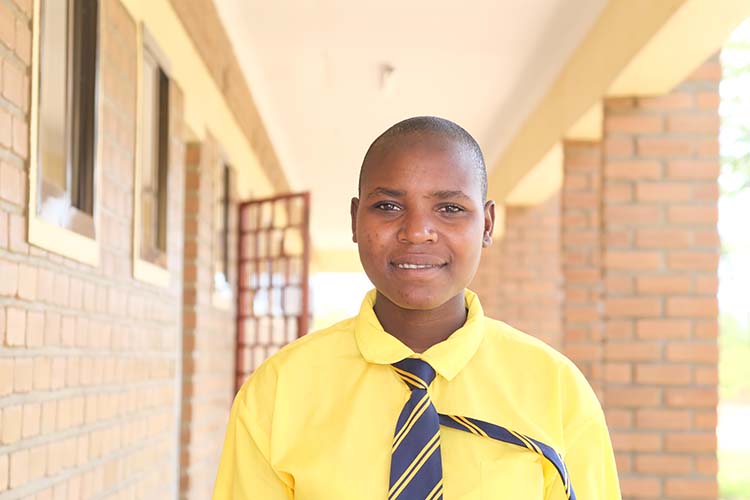
We are excited to announcea a generous donor gifted funds to build Kuwala’s second classroom block!
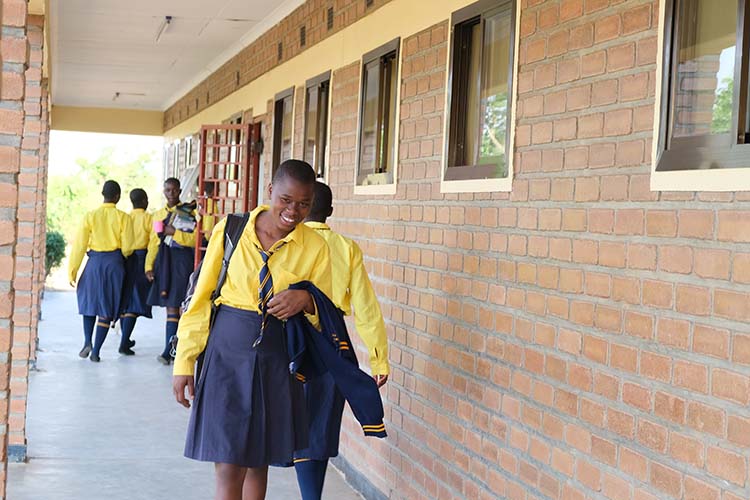
A recent follower of our Kuwala program has committed to sponsoring one of our next critical components / our second classroom. With the growing student body currently using both the first classroom building and temporarily using the St. Peter’s Assembly Hall for classes, this second classroom block with three new classrooms will be a tremendous support for ongoing education. We expect the construction to be completed in six months.
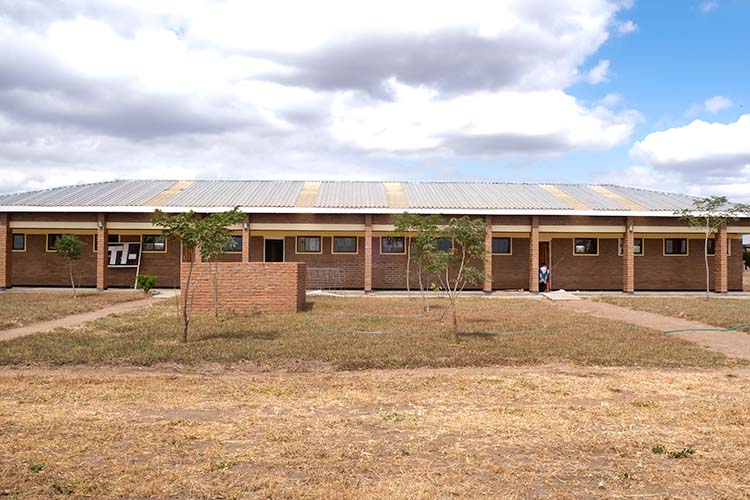
Excitement for the classroom construction is even at the local level where there will be added employment opportunities for the surrounding villages. The funded second classroom block will be the same quality of construction as the first. These buildings are built to last, and have metal roofs to shed water during the rainy season. A vestibule runs the length of the building providing shade and protection from the elements keeping the classroom cool and dry. Large windows provide ample diffused light during class time.
Be sure to visit the Kuwala website for more stories about what’s happening.
A print version of this newsletter with a new look can be found on our website under Stories, newsletters.
Or download the PDF with the link below.
https://www.kuwala.org/wp-content/uploads/2022/02/Kuwala_Feb_Newsletter_2022.pdf
